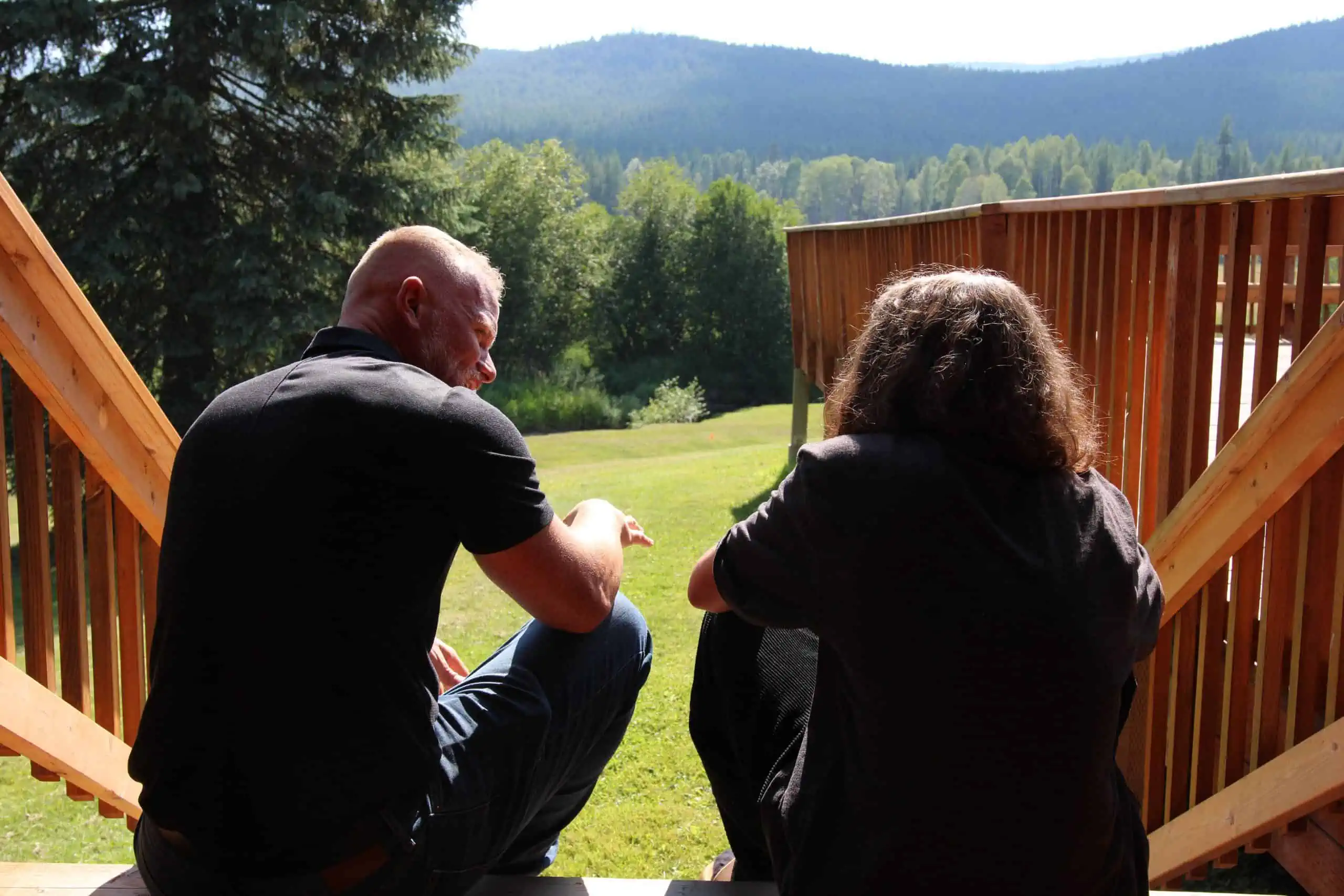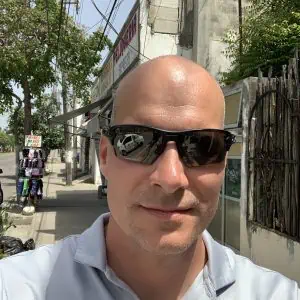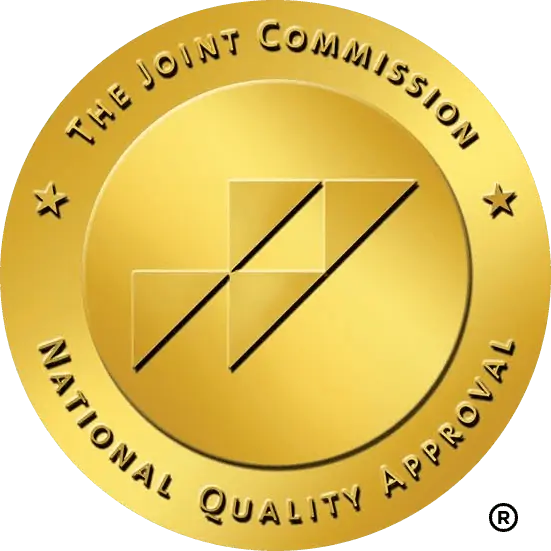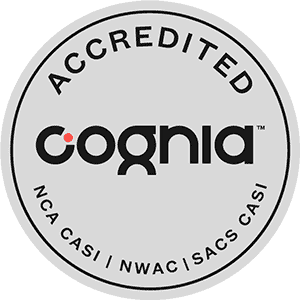All parents in America essentially face the same challenge: how do we raise children to make good decisions and have a good chance to succeed in our incredibly complex, fast-changing world?
As many parents know all too well, that’s not an easy task. “In this incredibly complex, fast-changing age, responsible kids are the only ones who will be able to handle the real world that awaits them,” wrote renowned parenthood experts Foster Cline and Jim Fay in their time-tested book Parenting with Love and Logic. “Life-and-death decisions confront teenagers—and even younger children—at every turn. Many of the temptations of adult life—drugs, internet pornography, premarital sex, alcohol—are thrown at kids every day… How will our children handle such intense pressures?”
Cline understands that parents are trying their best and that parenting is not always an easy job. Turning Winds’ chief operations officer Carl Baisden knows this well—from working with clients and their parents and from encountering challenges in his own family.
Cline’s Love and Logic Institute is dedicated to making parenting and teaching fun and rewarding, instead of stressful and chaotic. Dr. Cline introduces practical tools and techniques that help adults achieve respectful, healthy relationships with their children. All of their work is based on psychologically sound parenting and teaching, and a whole-child philosophy.
The treatment philosophy at Turning Winds is based on a healthy family environment with strong role models and structure paired with an academic focus and clinical individual and group sessions. Family engagement can play a vital role in the recovery of teens with substance use issues and their entire family system. During the parent workshop, the parents of our clients get to meet Dr. Cline to explore emotional triggers and parenting dynamics. The workshop equips parents with empathy-driven, logical tools to reframe their responses to their children’s behaviors. “Parents have this intense emotional attachment to their kids, and sometimes that causes them to parent from an emotional standpoint, not a logical one,” explains Dr. Cline.
FIGHTING OVER SCREEN TIME
Many parents know this scenario: it’s bedtime but your teenager wants to continue playing video games. How should a loving parent handle the situation? Enforce bedtime? Negotiate?
“I love what Dr. Cline has been saying more and more in our workshops: you gotta find reasons to say yes to your kids,” says Baisden. “If that were my kid, instead of saying, ‘no, that’s not what we do,’ I could try a conversation, saying, ‘Hey, I understand you had a long day and this is something that you value and appreciate, so, take ten or fifteen minutes.’ It’s a perfect reason to say ‘yes’ and it’s bigger than just saying we agreed you go to bed at ten o’clock. Now we have context and a great opportunity to say ‘yes’ and maybe have a follow-up conversation the next day where we are not battling but saying something like ‘Could we have done things differently last night, could you have started the game earlier? And maybe you’re cool with not starting games at ten?’ In the moment, kids are usually prepared to battle with parents over something like this and so that’s the worst time to ‘die on that hill,’ and so to give them that let them have that time and follow up the next day and addressing it and aligning with the child and make them realize it’s their world and you’re just trying to support them with what works and what doesn’t. What we did yesterday—I’m glad it all worked out but that’s not something that we should make a habit.”
LEARNING FROM FAILURE
Baisden’s own son is 14 going on 15. He is the local star basketball player on his team. It’s a sport he is very passionate about. “He’s a really good player,” says the proud father. “He’s the go-to guy on the team and like every 14-year-old hasn’t mastered emotions yet and still gets super competitive and still will get frustrated and angry.”
Like most teenagers he lacks “the ability to really see the big picture and doesn’t understand that failure isn’t just not bad—it’s absolutely necessary. As parents, we sometimes prevent our kids from failing. We intervene too frequently and we don’t allow them to have their own experiences.”
Baisden is reminded of the quote he heard: “Parents often feed their self-esteem by robbing their children of theirs.” He feels parents often “get overly invested in the outcomes with their kids” and want to be in control of those outcomes but that’s “directly attached to our self-worth and our self-esteem but as we do that, we take it from our kids and so in a very real way they lack a sense of self because we rob them.”
Failure can be scary, of course, but throughout history, “if you look at every kind of human being, the reason they got there was because of failure,” says Baisden. Thomas Edison failed many times before successfully inventing a practical incandescent light bulb, famously saying, “I have not failed 10,000 times. I have not failed once. I have succeeded in proving that those 10,000 ways will not work.”
Baisden talks a lot about Michael Jordan with his kid. “Michael Jordan missed more shots than he made throughout his career and he directly attributes every one of those misses to why he was so successful. Failure is an underrated awesomeness, a tool in our world and we need it. Our ultimate goal is to have them learn. Then it’s not failure. It’s just the process.”
“Michael Jordan doesn’t look back at his career in basketball with any degree of failure and why should,” says Baisden. “Just look at what he accomplished—no one talks about his missed shots. He understands that failure is crucial. Failure is what gives us the data to execute on and change.”
Turning Winds is a family-run residential treatment center accredited by The Joint Commission, combined with a fully accredited academic program specializing in working with youth who are struggling with mental health or substance use issues. Over the past twenty years, Turning Winds has matured into a sophisticated treatment option that blends the benefits of a wilderness experience, a residential treatment center, and a therapeutic boarding school.
Our mission is to rescue teens from crises, renew their belief in their potential, reunite them with their families, and put them on a sustainable path to success. Contact us online for more information, or call us at 800-845-1380. If your call isn’t answered personally, someone will get back to you as soon as possible.









